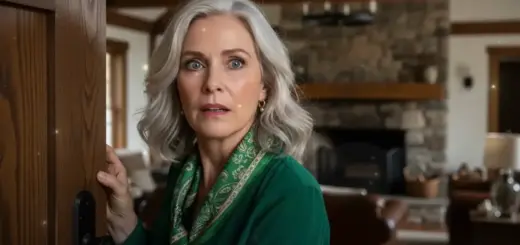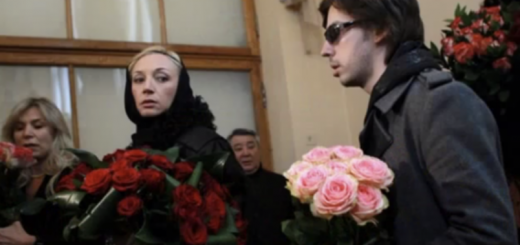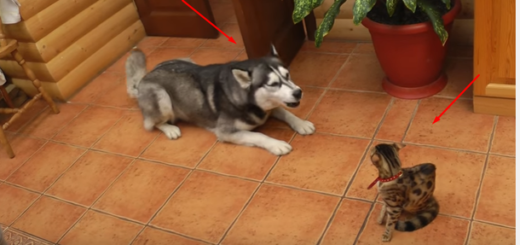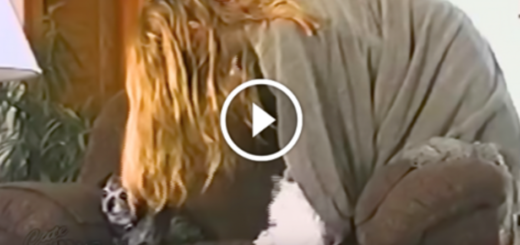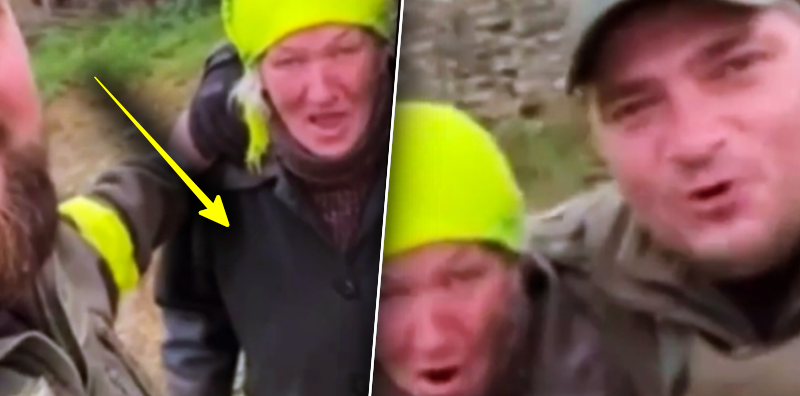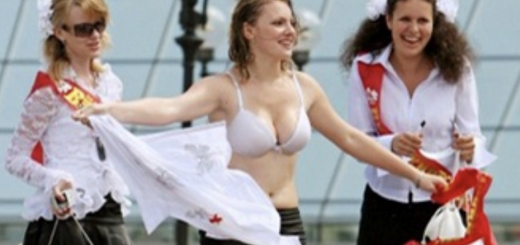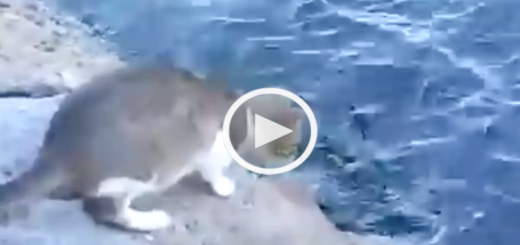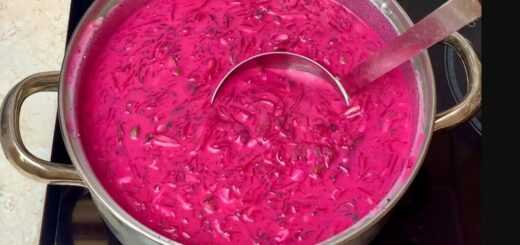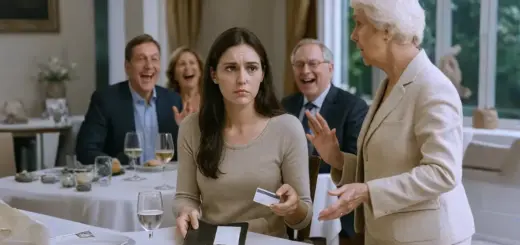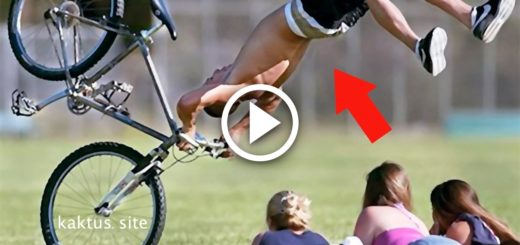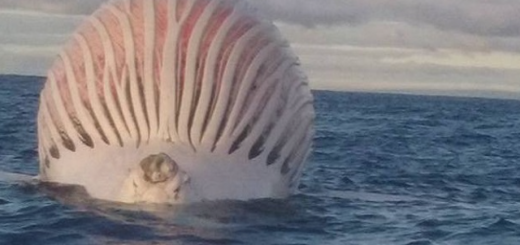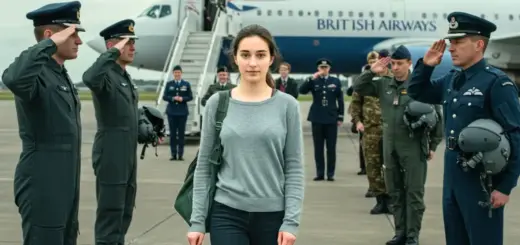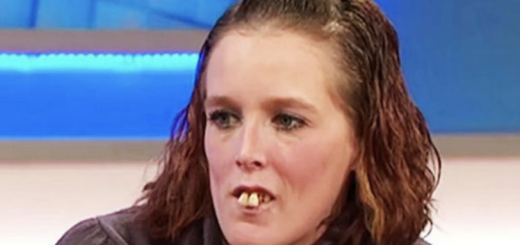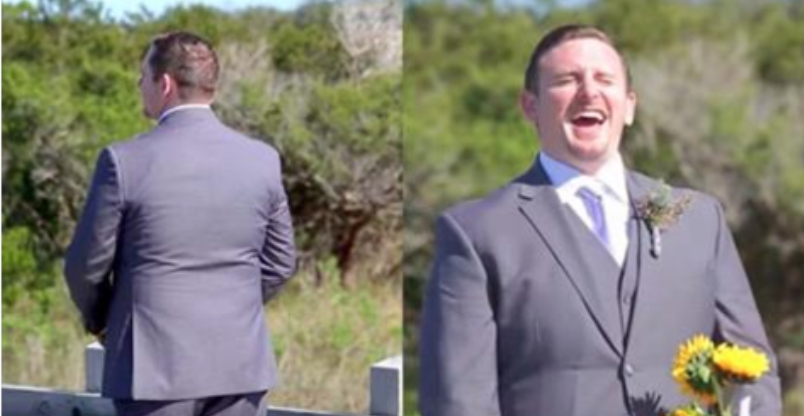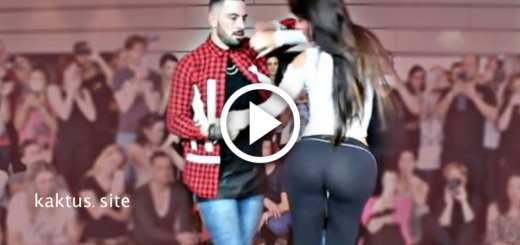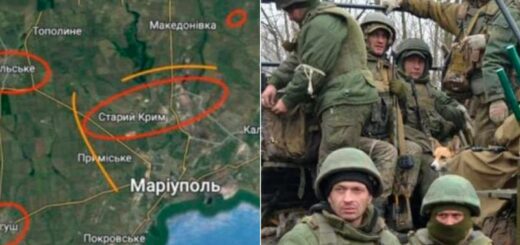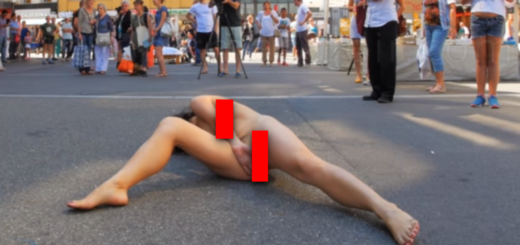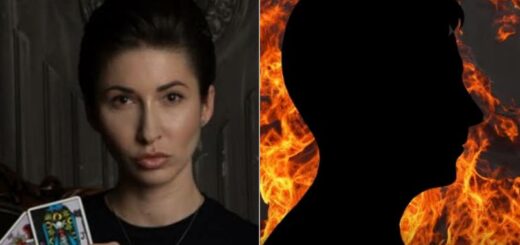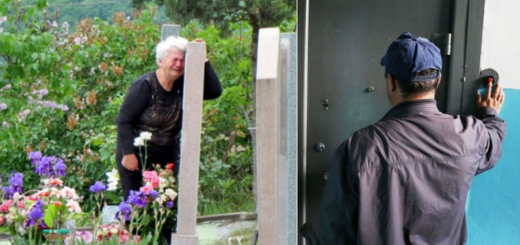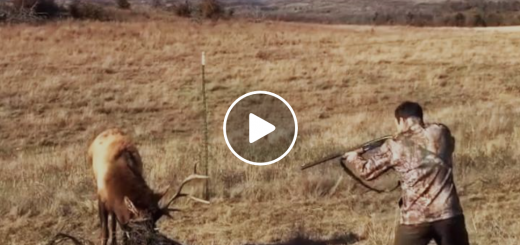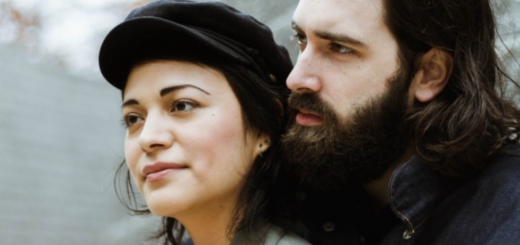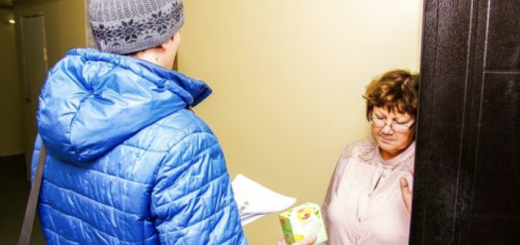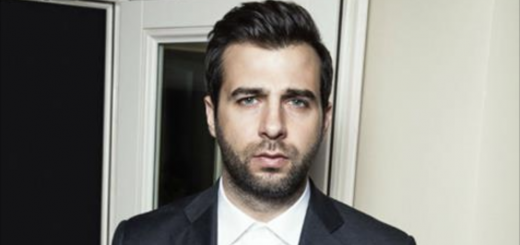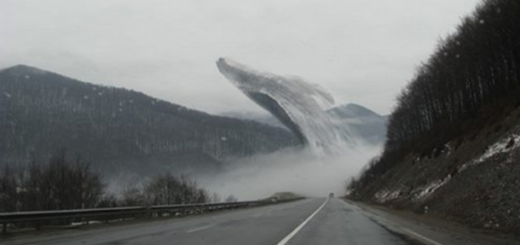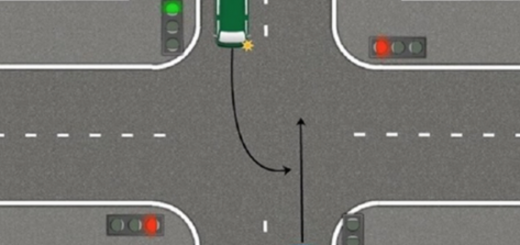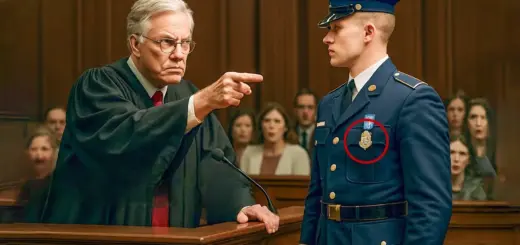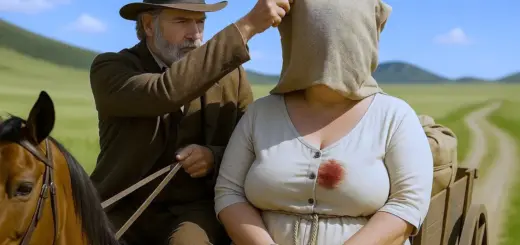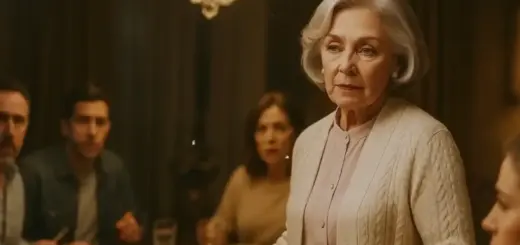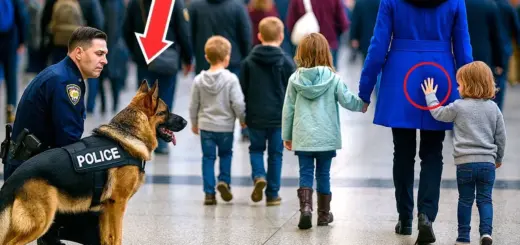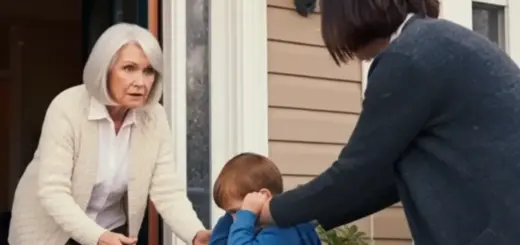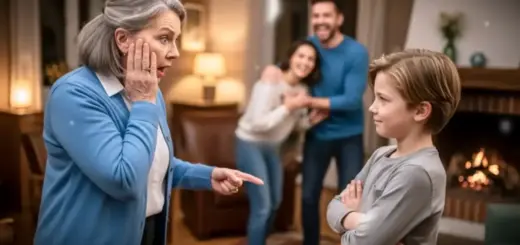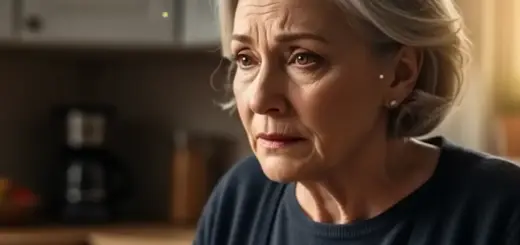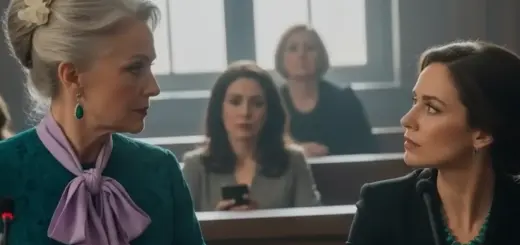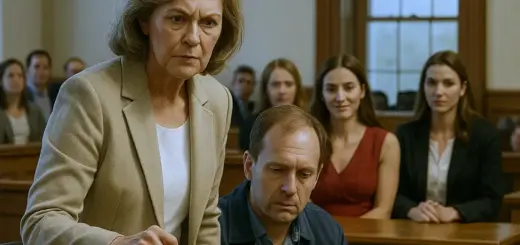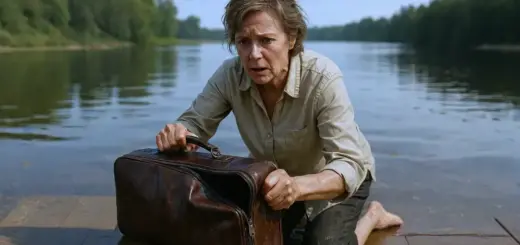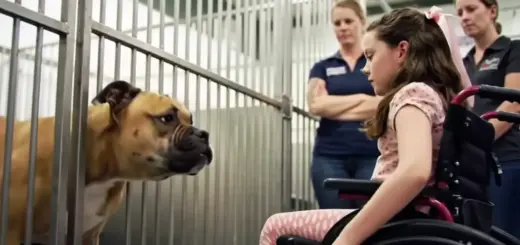Whispers followed them, from the general store porch, the blacksmith’s shed, even from the women gathering water at the pump.
«That’s the bride with the sack,» someone murmured.
«The mountain man’s purchase,» another snickered.
Mara kept her chin up, but inside something twisted. Elias noticed again.
When they returned to the wagon, he stopped before mounting. «You hold your head higher than most, Mara Lawn,» he said.
She shrugged, forcing a smile. «If I let them see me break, they win.»
Elias gave a short nod, admiration flickering beneath his rough exterior. «You’ve got more grit than most men I know.»
They rode back in silence, but it was a comfortable one, the kind that didn’t need filling.
A week later, the first wildflowers pushed through the snowmelt outside the cabin. Micah brought her one, a blue lupine, delicate as silk. He handed it to her wordlessly, and she tucked it behind her ear.
«Thank you, Micah,» she whispered. «It’s beautiful.»
Elias, watching from the porch, smiled slightly, though the expression was fleeting. There was something different in the way he looked at her now. Not pity, not curiosity. Something quieter, deeper.
That evening, when the sky blazed orange and gold over the ridge, Elias spoke while sharpening his knife by the fire. «I used to think beauty was a curse out here,» he said. «It draws trouble, makes a man careless. But…» He paused, the blade catching the light. «I think I was wrong.»
Mara turned from the stewpot. «What changed your mind?»
He looked up slowly, meeting her gaze. «You.»
The word hung there, gentle but heavy. Mara froze. She wasn’t sure what to say, wasn’t sure she could say anything.
Elias didn’t press her. He went back to sharpening the knife, though his eyes stayed on her a moment longer than before. That night she lay awake staring at the rafters, her heart thudding.
He can’t mean it, she thought, not me. But when she closed her eyes, she could still see the look on his face, not one of hunger or desire, but of quiet recognition. As if, for the first time, he saw her as she truly was.
Spring arrived in full, and with it came a sudden rush of life: melting creeks, blooming meadows, and the smell of wet pine. Elias had begun taking Micah to learn to fish, and Mara often packed them bread and dried fruit for their trips.
When they returned, she’d hear laughter before she even saw them, Micah’s voice light and free, calling out, «Mama, look!»
The first time he said it, she froze mid-step. Elias looked just as startled, his eyes darting to her face.
Micah didn’t even realize what he’d said; he just held up a fish, grinning. «Mama, I caught it myself!»
Mara’s vision blurred. She dropped to her knees, arms open, and he ran straight into them. «Oh, Micah!» she whispered, holding him tight. «You did so good!»
Elias stood there, his expression unreadable again, but his eyes softened as he looked at them. «Seems like he’s got two things to thank God for now,» he murmured.
That night the cabin was filled with laughter again. For the first time, Mara sang, a soft tune from her childhood. Elias leaned against the door-frame, listening quietly as Micah clapped along. It felt right, like the world had stopped turning for just a while, content to listen.
A few days later, Elias hitched the wagon for a trip to town. «You’ll come this time too,» he said. «Micah’s been asking for a ribbon for your hair.»
Mara laughed, though her cheeks flushed. «He has, has he?»
«He says blue suits you,» Elias replied. «I’d say he’s got good taste.»
When they reached town, people stared again, but something had shifted. This time Mara didn’t lower her gaze. She walked beside Elias, calm, steady, radiant in her simplicity.
They passed Mrs. Leland, the woman who’d once told her she’d never be chosen. The older woman froze mid-step, eyes wide as she took in the sight before her: Mara with her head high, Elias’s hand resting gently on her back as they moved through the crowd.
Later that afternoon, while Elias loaded supplies, a young girl approached Mara outside the store. «Ma’am,» she said shyly, «my mama says you’re the woman who made the mountain man smile again.»
Mara blinked, startled, then she smiled softly. «Well,» she said, «maybe the mountain just needed a little warmth.»
Elias overheard. When he climbed onto the wagon beside her, his voice was low. «She’s right, you know. I hadn’t smiled like this in years.»
Mara turned to him, meeting his gaze, the sun catching the gold in his beard. «You’re a good man, Elias,» she said quietly. «You just needed to remember it.»
He nodded once, the corner of his mouth lifting. «And you, Mara, you needed someone to see what was already there.»
The wind picked up then, carrying the scent of pine and earth, and for a long moment, neither spoke. There were no vows, no declarations, no promises carved in stone, just two souls steady as the mountain around them, quietly beginning to belong.
The following weeks turned the valley into a quilt of green and gold. The thaw had finally broken, and the streams ran strong again. Birds returned to the pines, and every dawn sunlight poured through the cabin’s window like a blessing.
Life had settled into a rhythm, quiet, simple, almost tender. Elias would rise before dawn to chop wood or ride out to check his herd. Mara would wake soon after, fixing coffee, humming softly while she cooked. Sometimes Micah would tumble sleepily into the kitchen, his hair wild, his laughter quick.
There were no grand gestures between her and Elias, only a thousand small ones. The way he left her favourite mug near the fire before going out, the way she folded his shirts neatly by the hearth, the way their eyes sometimes met in silence and neither needed to look away. It was as though the mountain itself approved.
One morning, a thin mist wrapped around the trees when Elias saddled his horse. Mara handed him a cloth-wrapped parcel: bread, dried meat, and apple slices. «Be careful on the trail,» she said.
He adjusted the reins, glancing at her. «I’ll be back before nightfall.»
But Mara frowned. «You said that last time, and you came home after midnight bleeding from your arm.»
He tried to smile, but she caught the flicker of weariness behind his eyes. «You worry too much,» he murmured.
She crossed her arms, her tone soft but steady. «Someone has to.»
Elias paused, then chuckled quietly. «You sound like you’ve always belonged here.»
«I’m starting to think I do,» she said.
That earned her a look she couldn’t quite read, something deeper, heavier, as though he wanted to say more but didn’t know how. He rode off down the trail, the fog swallowing him whole.
The day stretched long and lonely. Mara kept herself busy, washing linens, sweeping the porch, helping Micah gather wildflowers by the creek, but as the sun began to dip behind the peaks, and Elias still hadn’t returned, a cold unease began to grow inside her.
When the first stars appeared, she finally saw a shape moving through the trees. Elias rode in, slumped forward, his shirt torn at the shoulder.
Mara ran to him. «Elias!»
«It’s nothing,» he muttered, though the blood on his sleeve said otherwise. He tried to dismount, but his legs buckled. She caught his arm, steadying him.
Inside the cabin, by the firelight, she cleaned his wound, a shallow gash, but long and angry. «What happened?» she asked.
He winced as she dabbed the cloth against his skin. «Coyote-trap. Old one. Didn’t see it.»
She shook her head, muttering under her breath. «You’re lucky it wasn’t worse.»
He smiled faintly. «That’s what you’re here for, isn’t it? To save me from my own foolishness.»
Her hands froze. The fire popped. For a long moment, she said nothing, then softly, «Maybe. Or maybe you’re the one who saved me.»
Elias looked up then, really looked at her. The lamplight played across her face, her soft features, her tired but steady eyes. «I didn’t save you, Mara,» he said. «I just gave you a home.»

